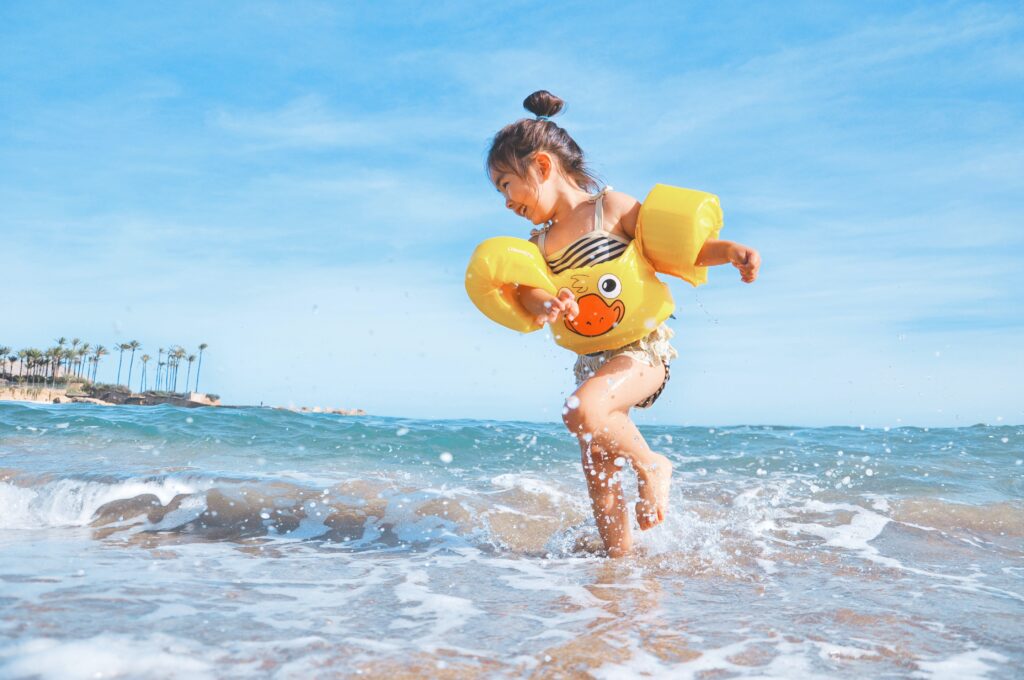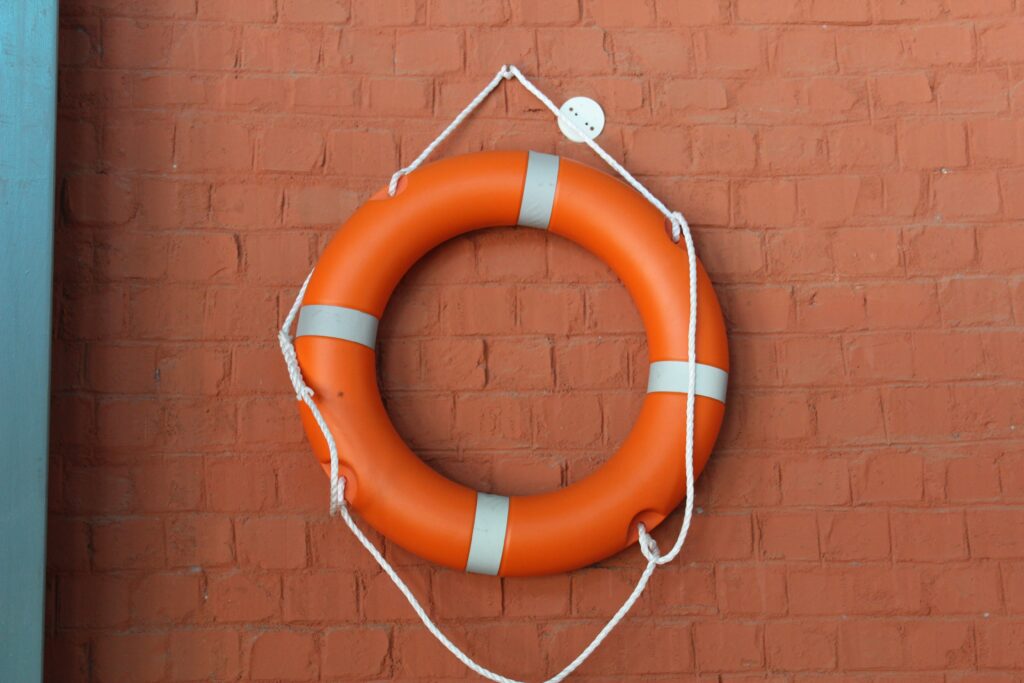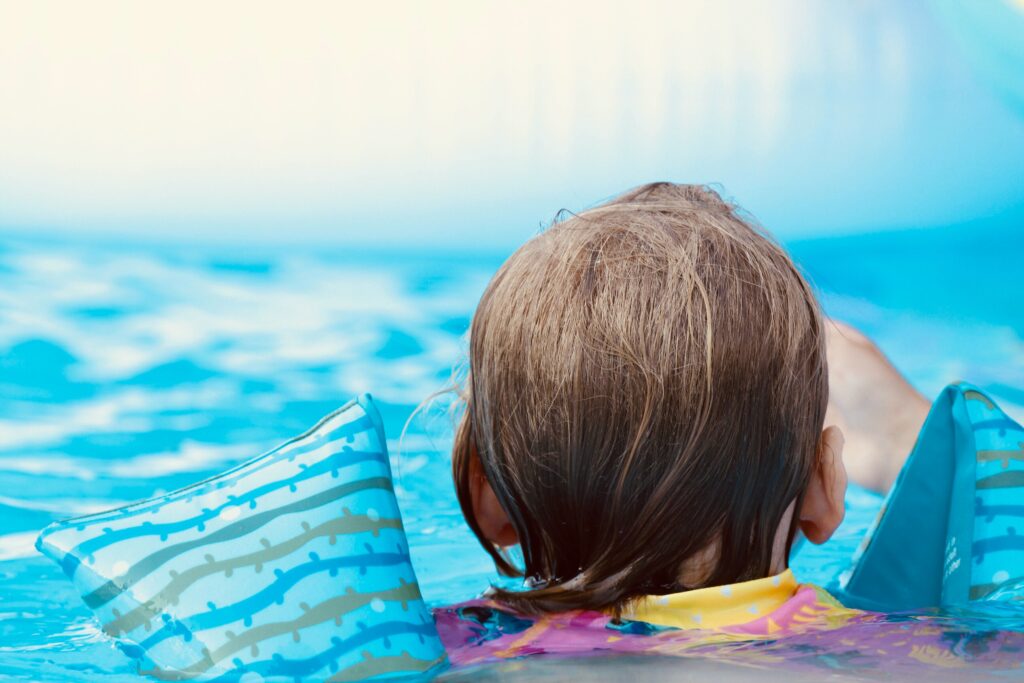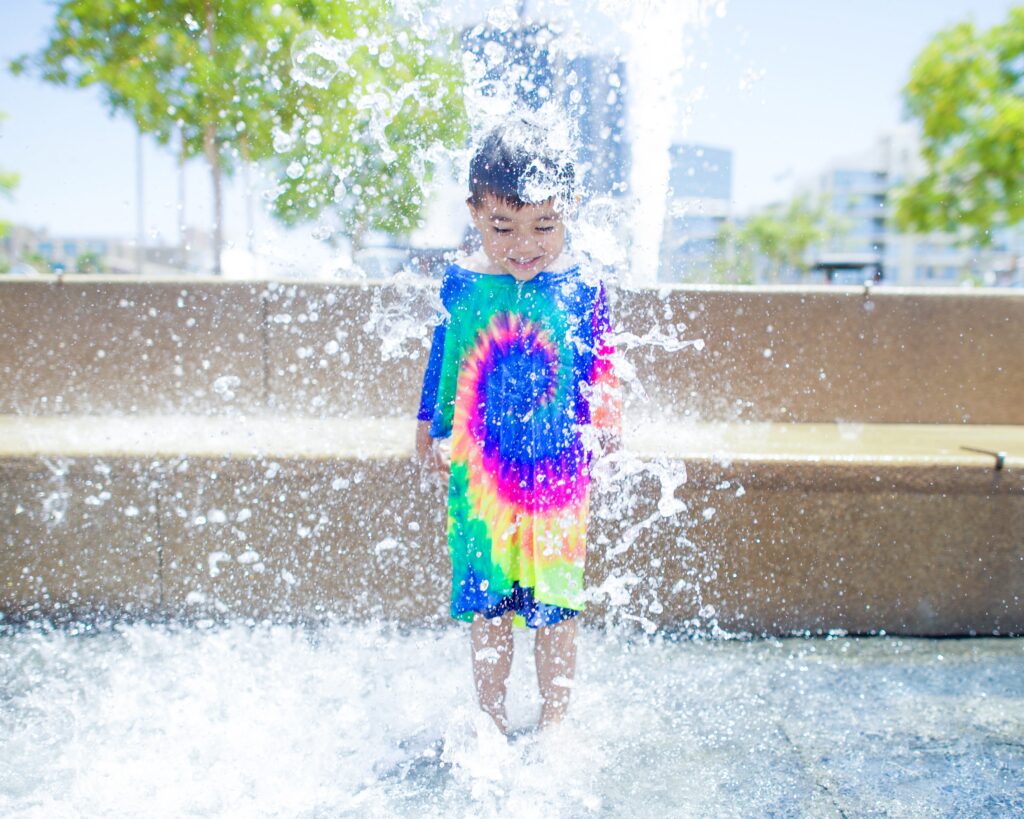23 Nov Why Swimming is An Essential Skill

We often hear from parents that their children are enrolled into swimming lessons as an after-school activity. The belief that swimming is both an enrichment activity and an essential skill is a strong motivator behind this trend. Since 2014, the Ministry of Education has made it compulsory for primary schools in Singapore to incorporate swimming into physical education.
Not only is swimming a fun and healthy activity to engage in for all ages, it is also considered a basic life skill that every individual should nurture. Read on to find out why swimming is regarded so highly in Singapore.
Essential for survival

Firstly, survival skills are essential! Yes, safety is of utmost importance, and we would do anything to keep our loved ones far from danger. Water playgrounds form a huge part of most kids’ childhood, and we want to make sure to avoid any mishaps.
Unfortunately, the most preventable danger of water is unintentional drowning, so it is no surprise that learning how to swim is a key factor in pool safety. Water hazards are unavoidable, but mishaps are. Both fatal and non-fatal drowning rates in children have been on the rise in recent years. As the saying goes, do not float where you cannot swim. Safety is a real concern, and you never know when this essential skill will come in handy!
Recreational benefits
Now, back to the really fun part of swimming! Swimming is an essential skill because of how widely it can be utilised in many other sport activities. Water sports such as kayaking, windsurfing, snorkeling or fishing require the most basic skill – to stay afloat in the water. The skill is helpful even when you go to beaches on Sentosa island. If you didn’t know how to swim, you’d be missing out on a whole lot of fun!
Improves overall health and wellbeing
Do you recall feeling exhausted and sleepy after swimming? That’s because swimming is a full-body workout that engages the entire body. Being in the water also forces us to resist pressure, so swimming is a good exercise for training strength.
As a low-impact sport, swimming is suitable for all ages. You could swim frequently and not wear your joints, and because water supports body weight, even people with mobility needs can learn how to swim.
Because we have to hold our breath underwater, the activity also improves our overall well-being by cultivating breathing techniques and breath control. This, over time, can boost our lung capacity, and is a great exercise for people with asthma. Psychologically, our minds tend to relax while we’re in the water too! The quietness of the water and pressure flowing in and out makes swimming a relaxing sport.
Be holistic, not just specific
That’s right, in order to ensure that you or your child has a pleasant experience with swimming,here are some other considerations you should take note of whenever you enter the pool.
Pool supervision
Whether you are babysitting a child or looking after your own kid, always supervise. It’s the easiest thing to do – be around! Stay alert and vigilant around the pool, and if your plate is already full, reach out for help. Kids are not the only ones vulnerable to danger; adults might compromise their own safety under various circumstances too.
Swimming tools

To aid your child in learning to swim, invest in pool aids and toys such as inflatable arm floaties or boards. This can be extra beneficial when the child experiences fatigue, and serves as an extra layer of protection for both child and adult. Of course, it is important to note that these should complement swimming lessons.
Basic life support
Cardiopulmonary resuscitation is a skill that most of us have to learn in primary school, though it is easily taken for granted by many. CPR and first aid are probably the best weapons you can own as a pool owner, parent, child or swimmer.
Follow pool rules & regulations
Remember the sign board beside the pool that we always skip? That board states all of the pool rules and regulations that swimmers should follow, so don’t forget to read it the next time you swim.
Clean pool

Let’s not forget that maintaining pool safety also involves physically cleaning the pool regularly. Ensure that there is a proper maintenance schedule, balanced pool chemicals and disinfectants, and keep any equipment away when not in use.
Pool chemicals and disinfectants are essential in keeping the waters clean, clear and healthy. But pool owners should also ensure that these chemicals are stored, used and labelled appropriately. Mishandling pool chemicals is probably the last thing you’d want to happen.
A clear pool is not always clean, and servicing pools are often neglected by many owners. Dirty swimming pools can thus result in skin irritation, diarrhoea, infections and other water-borne illnesses.
Now that you’ve read till the end, you should know why swimming is considered an essential skill by many. That being said, there are other complementary precautions we should take to ensure that our swim sessions are safe and fun!
Knowing that you are in safe hands is the feeling that we would love to experience every time we swim. Take the necessary precautions and stay alert! Hand the cleaning work over to FPNP Team, and we will guarantee a good job at keeping your pool safe!


